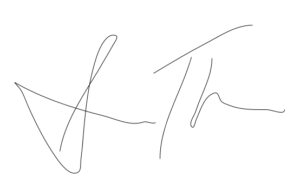Dear friends,
Our hearts have been assaulted in recent weeks by the succession of structural and physical violence in the news, from judicial decisions that would place ideology above women’s health, especially the health of Black, Latina, Indigenous, and other women of color, to the lives brutally ended by civilians wielding military firearms in a Buffalo supermarket, a Uvalde classroom, a Laguna Hills church, a Tulsa clinic, and so many other towns —compounded by the painful void of many elected officials’ unwillingness to act. Our bodies feel heavy. Our brains feel foggy. Our hearts are bleeding.
Even here, in the engine of hope that we’ve worked to build at HealthBegins, we feel weary. Violence hurts.
The remedy we have found in the past couple of weeks is a simple one: partnership. We fall victim to feeling overwhelmed when we consider the act of grieving or the opportunity for action an individual one, not a collective one. But these moments are inherently shared.
Finding strength and solace in partnership is especially important when the problems we wish to solve are not merely individual forms of harm (e.g. gun violence, health inequities, food insecurity, substandard housing, or other social needs) but structural forms of violence (disenfranchisement, redlining, or firearm laws that propagate and increase the frequency of injury and death due to firearms). When we see inequities as structural, it can be even harder to see how we, as individuals or small teams, can bring about solutions. But to build the world we want, real solutions require action at all levels, from program improvements and institutional reforms to community investments and broader policy changes. Fortunately, partnerships are the fuel and the power we need to take that action.
This doesn’t have to mean only full-scale organized action (though that’s required); it can start with just finding a like-minded partner in your work setting. We did this recently when we convened a call with partners working to build health equity and clinical-community links in communities across California to discuss our deepest concerns and highest aspirations. We didn’t know exactly where the call would lead. We just knew that we were all striving to rewrite legacies of racism and inequity on a long, sometimes lonely journey—and that we should be doing that together.
We concluded that conversation still hurting but hopeful, energized by the solidarity, conviction, and love of our fellow voyagers on this path. The community we created on that call sparked ideas, even if they were only small ones, that in time will lead to bigger ones. Together, we were able to lift up our heads and hearts and look, momentarily, toward the future.
So when you’re worn out by injustice, try asking yourself: Who are your people? Maybe you’re connected to them by geography, subject matter, or practice. Reach out to them. Open conversation. Invite connection.
If you enter that conversation feeling overwhelmed, heavy, or grieving, begin by naming that. When you don’t know what to do, say so. Let the discussion of your aspirations start there and stay there for as long as it needs to.
In these moments of grief and weariness, let partnership hold you. Put one foot in front of the other if that’s all you can do—move just to move—but do so with your community close by. And then, when you’re ready to act again, you’ll already have the collective muscle built in.
With gratitude,


Sadena Thevarajah, JD Rishi Manchanda, MD, MPH.
Featured content
Staff Spotlight: Erica Jones, Following Her Path and Passion to Help People
“I wish people would try to advocate for themselves more, because I feel like there's this power struggle and people don't feel like they can.”
Staff Spotlight: Kyron Pierce, The Eagle Scout with a Passion For Helping People Lead Healthy Lives
“[Health equity] is very hard work and it might be some years for us to see the fruits of our labor, but it'll be worth it when you do produce it.”
Staff Spotlight: Alejandra Cabrera, Perfectly Imperfect Artist and Health Equity Advocate
When I work with people and communities, I always think back to this sense of not belonging and it drives me to continue to do the heart-work we need to do to advance health equity.

